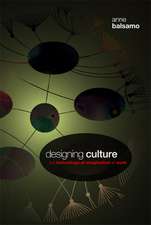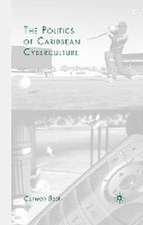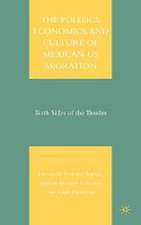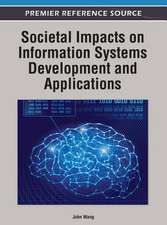Making Sense of Dictatorship
Editat de Celia Donert, Ana Kladnik, Martin Sabrowen Limba Engleză Hardback – 30 ian 2022
How did political power function in the communist regimes of Central and Eastern Europe after 1945? Making Sense of Dictatorship addresses this question with a particular focus on the acquiescent behavior of the majority of the population until, at the end of the 1980s, their rejection of state socialism and its authoritarian world.
The authors refer to the concept of Sinnwelt, the way in which groups and individuals made sense of the world around them. The essays focus on the dynamics of everyday life and the extent to which the relationship between citizens and the state was collaborative or antagonistic. Each chapter addresses a different aspect of life in this period, including modernization, consumption and leisure, and the everyday experiences of ordinary people, single mothers, or those adopting alternative lifestyles.
Empirically rich and conceptually original, the essays in this volume suggest new ways to understand how people make sense of everyday life under dictatorial regimes.
Preț: 408.74 lei
Preț vechi: 504.62 lei
-19% Nou
78.21€ • 81.89$ • 64.87£
Carte disponibilă
Livrare economică 20 martie-03 aprilie
Livrare express 05-11 martie pentru 34.41 lei
Specificații
ISBN-10: 9633864275
Pagini: 260
Dimensiuni: 152 x 229 x 23 mm
Greutate: 0.57 kg
Editura: CEU EDUCATIONAL SERVICE NON-PROFIT LLC
Descriere
How did political power function in the communist regimes of Central and Eastern Europe after 1945? Making Sense of Dictatorship addresses this question with a particular focus on the acquiescent behavior of the majority of the population until, at the end of the 1980s, their rejection of state socialism and its authoritarian world.
The authors refer to the concept of Sinnwelt, the way in which groups and individuals made sense of the world around them. The essays focus on the dynamics of everyday life and the extent to which the relationship between citizens and the state was collaborative or antagonistic. Each chapter addresses a different aspect of life in this period, including modernization, consumption and leisure, and the everyday experiences of ordinary people, single mothers, or those adopting alternative lifestyles.
Empirically rich and conceptually original, the essays in this volume suggest new ways to understand how people make sense of everyday life under dictatorial regimes.









